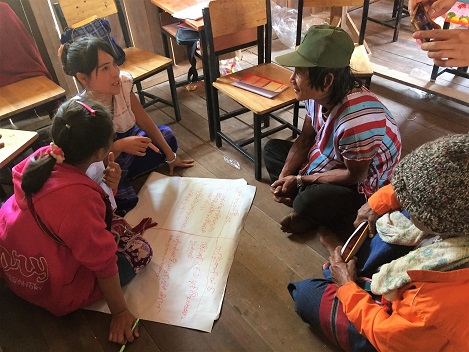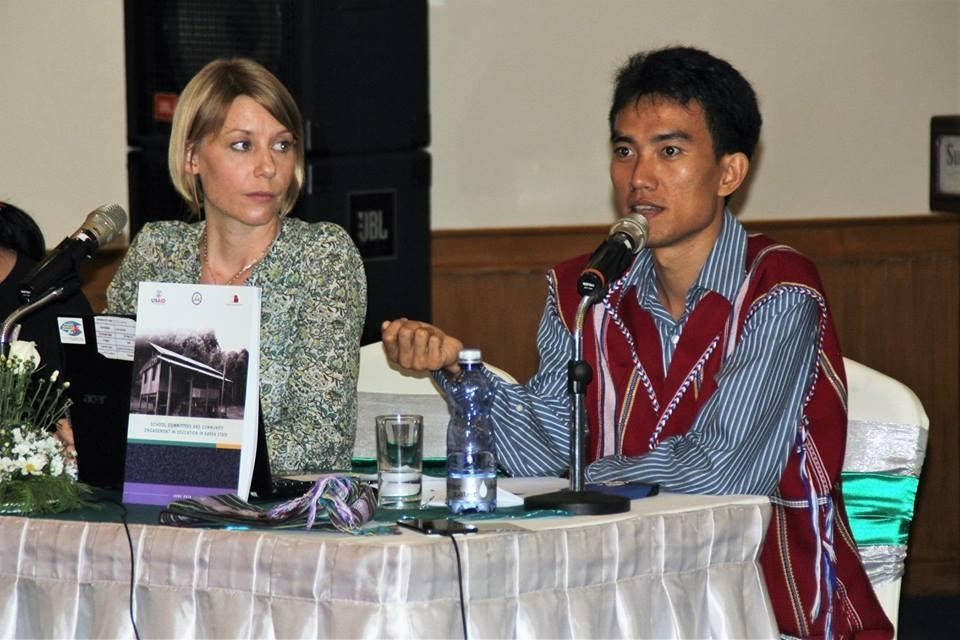
School Committees have the potential to act as key mechanisms in strengthening education services for ethnic minority communities.Recent government-led national education planning has resulted in the development of the Burma National Education Sector Plan (NESP). Given the focus on the state system, and the lack of reference to ethnic and refugee concerns in the NESP, an increased need for engagement between state and non-state actors is required to ensure that the role of existing providers, and communities themselves, are recognized.
Through PLE, the Karen Education Department has increasingly enhanced engagement on behalf of its beneficiaries in national and state level policy discourse, and raised its profile as a key education service provider in Burma.
Through the PLE co-facilitated Education Stakeholders joint platform, the KED has participated in discussions and planning for actions around convergence issues and key areas relevant to ethnic and refugee children. In 2016, the KED completed a comprehensive assessment of community engagement in education to provide qualitative field-level data to inform policy and education planning. Read the report.
By engaging with these initiatives, the KED contributes toward and promotes discussion around issues of mother tongue, teacher education and management, and inclusive education policy. At state level the KED has liaised with the Karen State Education Department most recently on student transfer and teacher management.
As a result of these efforts, planning for inclusive education policies in Burma benefits from the voices of non-state actors and community level messaging in ensuring no child gets left behind in a future Burma.
“The School Committees have the potential to act as key mechanisms in strengthening education services for ethnic minority communities. Looking towards the future of education in Karen State, it is essential to capitalize on and develop these valuable community-level mechanisms…..,it is essential to engage constructively with these local-level mechanisms, in order to support education systems that contribute positively to peace building efforts”. Community Engagement in Education in Karen State Report- April 2016
Researcher Dr. Anne Décobert and KED Secretary Law Eh Moo discuss research findings at the launch of the report into School Committees and Community Engagement in Karen State in Yangon, Myanmar.
KED’s Mission/Vision: To equitably assist in the development of an inclusive educational system within Burma/Myanmar that enables learners to develop their individual potential and to acquire knowledge, skills and attitudes needed to contribute to a healthy, democratic and pluralistic society, and a prosperous and sustainable economy.
Link to PLE Strategy: With PLE support KED promotes increased access to education services for vulnerable populations in South East Burma through the administration of schooling in Karen areas. Recognized for its leadership role in Karen education, the KED develops policy, trains and directs education personnel, coordinates the delivery of school supplies as part of the Karen State Education Assistance Group and facilitates consultations with stakeholders regarding education issues, including IDP education and refugee return. The KED mobilizes stakeholders for engagement with the Government of Burma’s Karen State Education Department.
Partnership period: 1st April 2014 – 31st July 2017
Project location(s): Karen, Mon and Tanintharyi States, Burma
Project beneficiaries (direct & indirect): Students and teachers in community and mixed schools in Karen State

